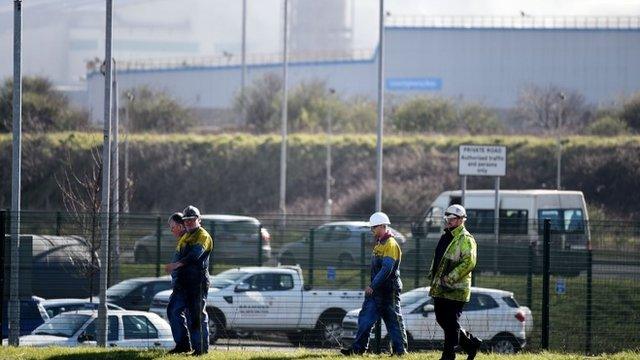Port Talbot: Javid tells workers plant has a future
- Published
Business Secretary Sajid Javid came face-to-face with steel workers at Port Talbot
Business Secretary Sajid Javid has told workers there is a future for steel production at Port Talbot, insisting the government is on "their side".
Hundreds of Tata Steel workers gathered to demand answers from Mr Javid as he left a meeting at the plant.
Holding a "Save our Steel" banner, workers asked him: "So you're not going to let us go to the wall?"
He said he would be "fully involved" in talks over a possible sale and there were "viable buyers" out there.
Tata Steel UK: What are the options?
Call to 'take over' Tata's pension fund
What's going wrong with Britain's steel industry?
What next for Tata Steel workers?
Steel v banks - Why they're different when it comes to a government bail-out
The business secretary also defended his handling of the crisis and rejected claims the UK had been too easy on China over steel dumping.
Labour said ministers seemed "unaware" of the severity of the crisis.
'Rushed back'
Mr Javid has been under fire for being in Australia at the time that Tata announced its intention on Tuesday to sell Port Talbot and its other UK assets, putting at least 15,500 jobs at risk.
The minister, who returned on Friday morning, said he had "rushed back" amid concerns that there might only be weeks to safeguard the plant's future but had since been reassured by Tata that more time would be allowed to find a buyer.
Asked by workers if he would do everything he could to save their livelihoods, he did not give a firm guarantee but said: "We are on your side...There is time there."
Mr Javid said steel was "absolutely vital" to the UK's future industrial strategy, insisting that ministers had been in talks with Tata about the future "for a long time".
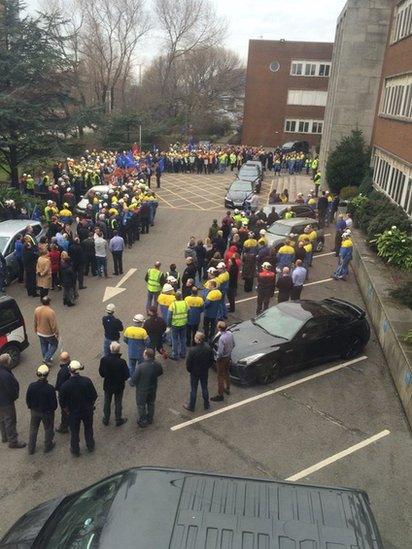
Workers waiting for Mr Javid to emerge from the talks
A crowd of workers chanted "save our steel" as Mr Javid was driven away from the site. He later tweeted, external that he was "honoured to meet some of the hardest working men and women in Britain".
The government is facing claims that it has blocked an EU measure which would have tackled the "dumping" of cheap Chinese steel in Europe - one of main handicaps facing UK producers.
'Not the answer'
Ministers opposed an European Commission proposal to lift the "lesser duty rule" cap, which would allow tougher tariffs to be imposed on cheap imported steel, arguing higher tariffs would hit other sectors such as the car industry.
But Mr Javid said this could "not be further from the truth", telling workers that the UK had "been the leader in getting tariffs imposed where evidence exists" of unfair trade practices.
Tata Steel's UK business - which directly employs 15,000 workers and supports thousands of others - includes plants in Port Talbot, Rotherham, Corby and Shotton.
After a board meeting at its headquarters in Mumbai on Wednesday, Tata confirmed plans to sell its loss-making UK plants. Unless a buyer can be found, thousands of jobs are at risk.
The Port Talbot plant - which employs 4,100 people - is said to be losing £1m a day.

Dumping, duties and steel
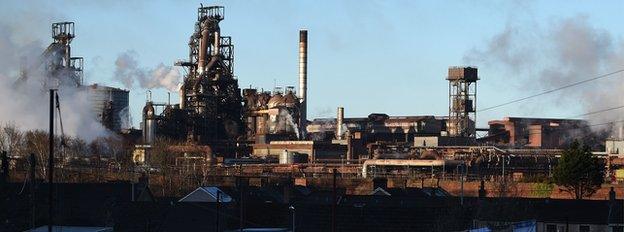
The EU is imposing financial penalties on 16 categories of Chinese steel imports which they believe are being "dumped" on overseas markets - effectively being sold at a loss.
The rate of these duties varies but, controversially, they are more often than not lower than the actual amount by which the products are under-priced.
This is in, large part, down to the so-called "lesser duty" rule.
This rule, which derives from World Trade Organisation regulations, external, states that it is desirable, although not necessary, for tariffs to be applied at a level "adequate" to remove the financial harm caused to competitors but "at a level lower than the margin of dumping".
UK steel producers and unions argue the EU, by adhering to this rule, has effectively capped steel tariffs at 9% although the European Commission does not recognise this figure.

Both Mr Javid and Prime Minister David Cameron have said nationalisation is "not the answer" for British steelworks but union and opposition figures have criticised the government for failing to do enough to respond to the issue.
'Shoulder to shoulder'
Roy Rickhuss, the general secretary of the trade union Community which represents many steelworkers in Port Talbot, says Mr Javid had been slow to react.
"He must have known there was a potential for there to be a closure announcement last week and he wasn't to be seen."
And Labour leader Jeremy Corbyn said public ownership may be the only answer to guarantee the industry's future if no buyer came forward.
"I would advocate some form of public intervention, if necessary full public ownership, the crucial thing is to preserve the steel industry in Britain as a basis for our economic growth," he said.

Charles De Lusignan, from the European Steel Association, told BBC Radio 4's Today programme that the UK had not done all it could and, indeed, had been instrumental in blocking a European Commission proposal from 2013 to remove restrictions on higher tariffs.
Steel production makes up 1% of Britain's manufacturing output and 0.1% of the country's economic output.
It is understood the government is looking at offering loan guarantees to potential buyers and tighter rules on procurement to make sure major British projects are obliged to buy British steel.

Do you work at the Port Talbot steel plant? How will the plans to sell it affect you and your family? Let us know about your experiences. Email haveyoursay@bbc.co.uk, external with your stories.
Please include a contact number if you are willing to speak to a BBC journalist. You can also contact us in the following ways:
WhatsApp: +44 7525 900971
Send pictures/video to yourpics@bbc.co.uk, external
Tweet: @BBC_HaveYourSay, external
Send an SMS or MMS to 61124 or +44 7624 800 100
- Published31 March 2016
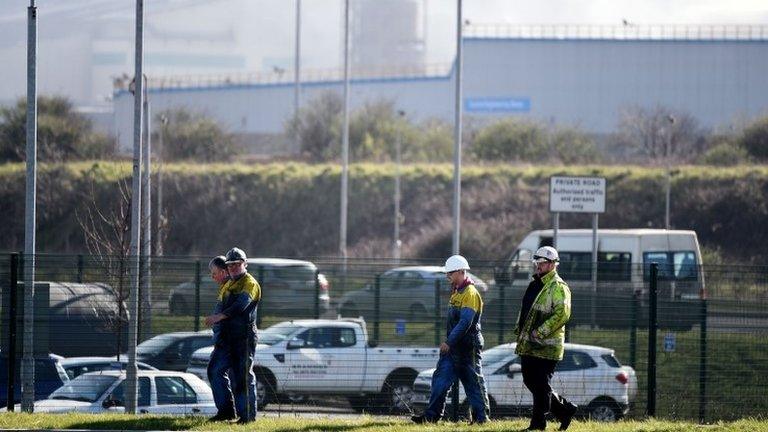
- Published31 March 2016
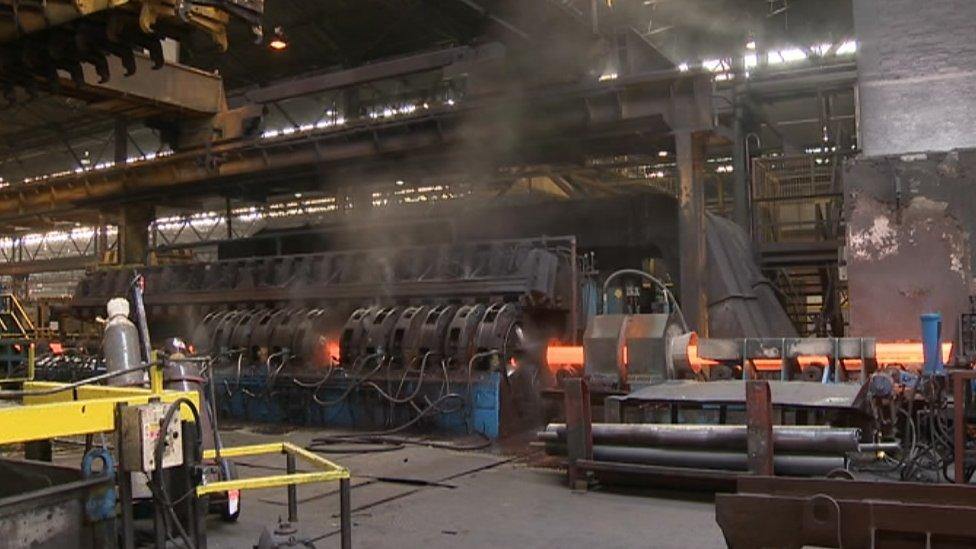
- Published31 March 2016
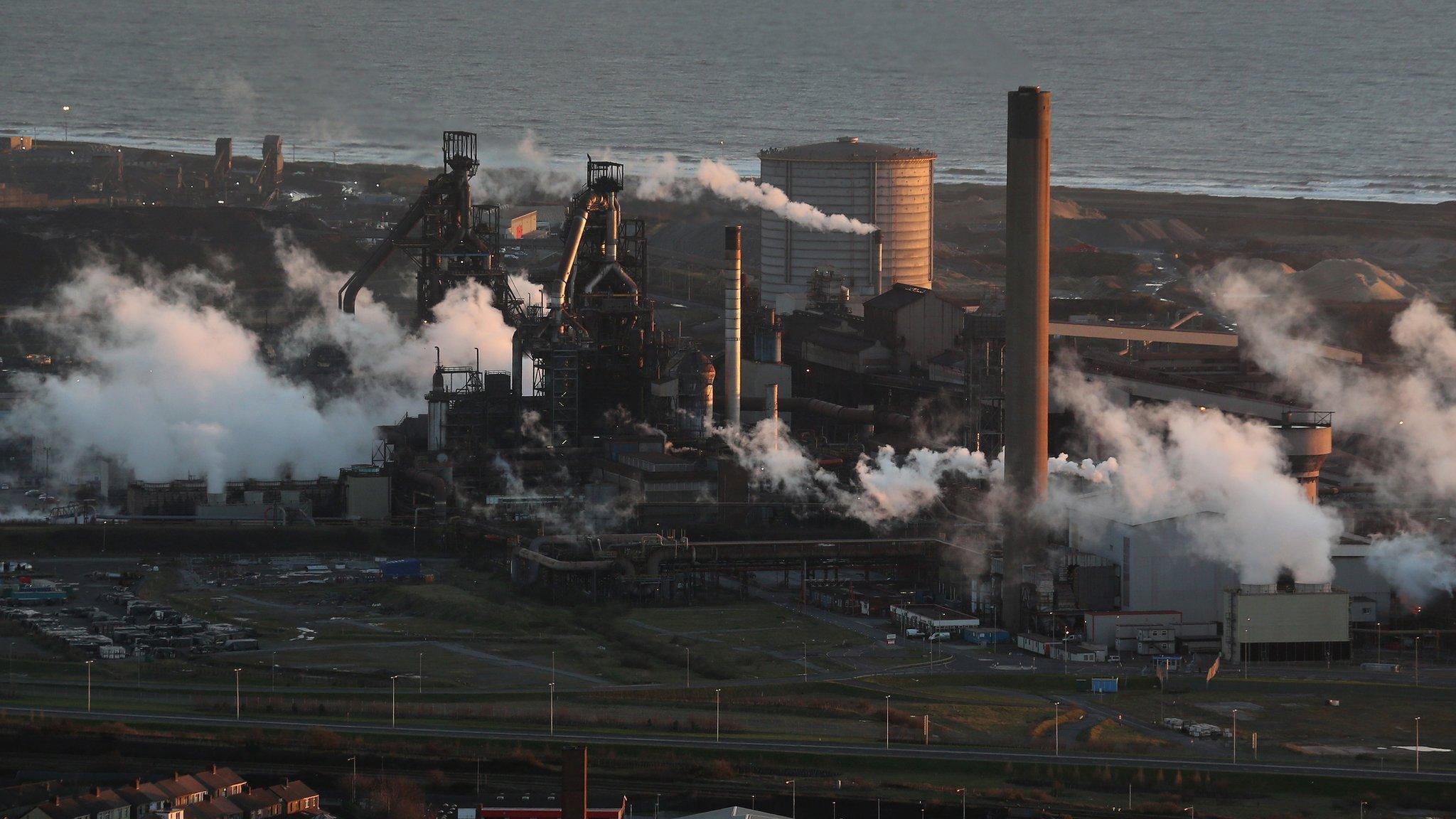
- Published31 March 2016
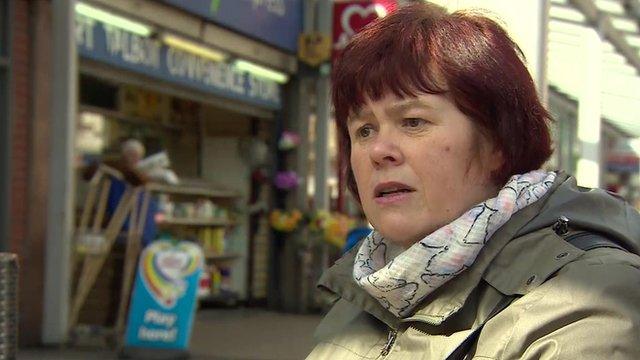
- Published31 March 2016
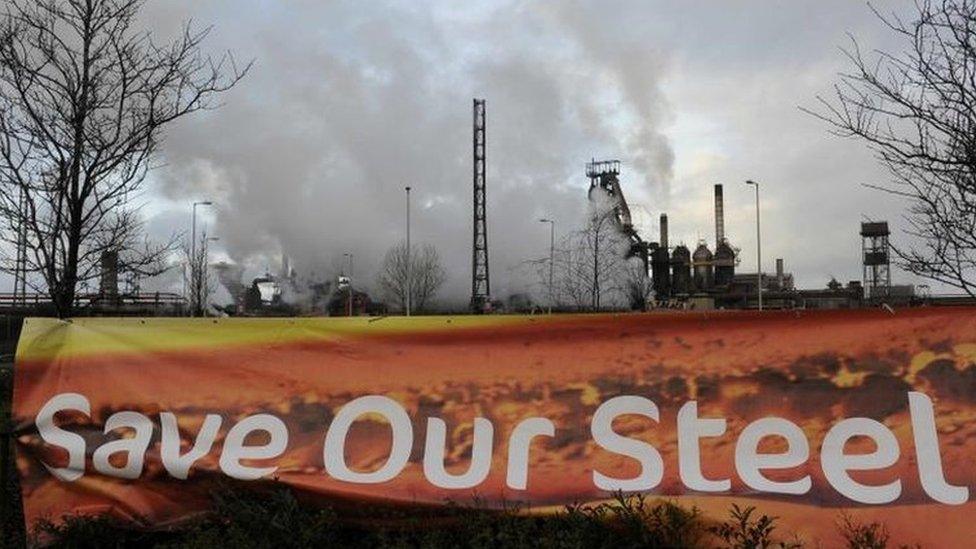
- Published30 March 2016
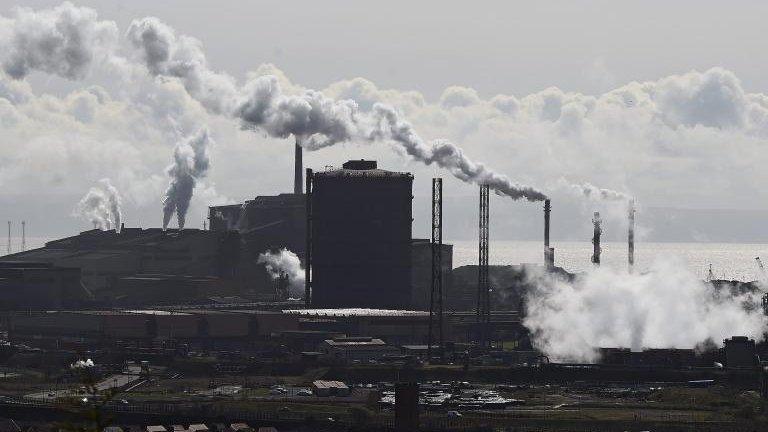
- Published30 March 2016
- Published30 March 2016
